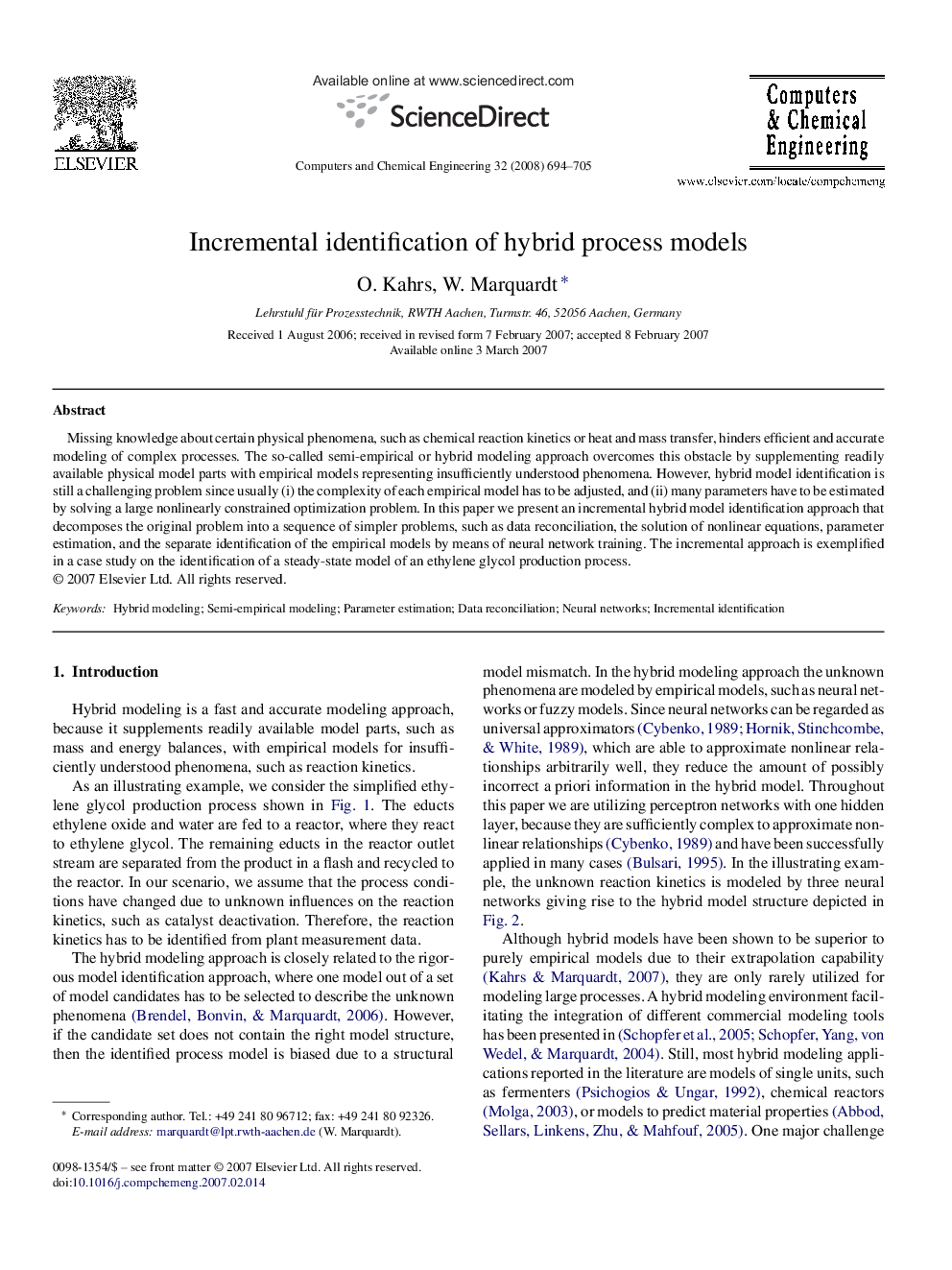| Article ID | Journal | Published Year | Pages | File Type |
|---|---|---|---|---|
| 173722 | Computers & Chemical Engineering | 2008 | 12 Pages |
Missing knowledge about certain physical phenomena, such as chemical reaction kinetics or heat and mass transfer, hinders efficient and accurate modeling of complex processes. The so-called semi-empirical or hybrid modeling approach overcomes this obstacle by supplementing readily available physical model parts with empirical models representing insufficiently understood phenomena. However, hybrid model identification is still a challenging problem since usually (i) the complexity of each empirical model has to be adjusted, and (ii) many parameters have to be estimated by solving a large nonlinearly constrained optimization problem. In this paper we present an incremental hybrid model identification approach that decomposes the original problem into a sequence of simpler problems, such as data reconciliation, the solution of nonlinear equations, parameter estimation, and the separate identification of the empirical models by means of neural network training. The incremental approach is exemplified in a case study on the identification of a steady-state model of an ethylene glycol production process.
